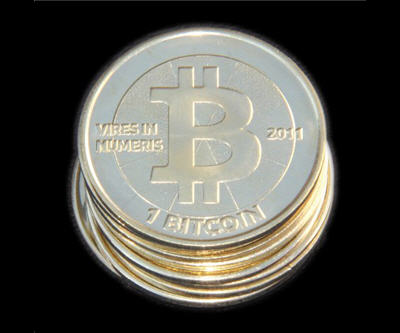Virtual currency Bitcoin surges as Cyprus haircut fears spread

It’s not only the gold price that has benefited from fears over governments dipping into private citizens bank accounts a la Cyprus.
Nervous savers are also looking at other alternatives to fiat currencies.
The most widely used virtual currency is Bitcoin created in 2009 by Satoshi Nakamoto.
No central authority issues new money or manages transactions. Instead, money is generated collectively by a network, also known as miners.
Businessweek reports Spaniards have been downloading apps to trade in Bitcoins at a furious pace, fearing a repetition of the Cyprus haircut on the Iberian peninsula:
The value of the virtual currency has soared nearly 15 percent in the last two days, according to the most-recent pricing data. “One hundred percent of that is due to Cyprus,” says Colas. “It means the Europeans are getting involved.”
That Spaniards would consider converting a portion of their dwindling savings into a peer-to-peer currency vulnerable to wild price fluctuations and the odd thieving Trojan speaks volumes about banking confidence in some parts of Europe.
As German economist Peter Bofinger warned in an interview with Spiegel Online: “European citizens must now fear for their money.”
IEEE Spectrum published this infographic in the fall explaining the Bitcoin process:
{{ commodity.name }}
{{ post.title }}
{{ post.date }}





Comments